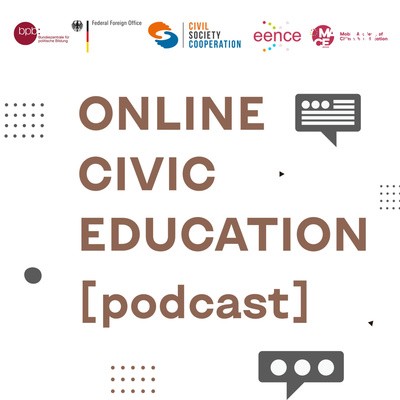EENCE-Podcast #8: Environmental Sustainability for Civic Education Stakeholders
We continue to dive into the topic of ecology together with a youth worker, a member of the Youth Advisory Council, coach Teona Sadradze (Georgia) in the new EENCE-podcasts.
From this podcast, you will learn what environmental sustainability is, how it works and how it affects civil society, what needs to be done to improve environmental sustainability in real life.
“We need to become more attentive to the environment: to gain knowledge, to be eco-friendly, to promote the eco-movement in society, in schools. Often, knowledge about the environment is provided within the framework of the Biology subject, but it is worth remembering that first of all everything depends on our daily personal habits, ” says Teona Sadradze. – Knowledge, skills and competencies in the field of environmental sustainability will help us solve real problems, from local to global. Teachers, mentors, trainers can effectively transmit such knowledge and be motivators for civil society”
Civil society should conduct an open dialogue with the State in order to encourage politicians to make appropriate decisions and move from calls to actions.
The education of environmental citizenship should provide citizens with the necessary competencies to achieve this goal.
Political and communication skills are the most important assets needed by environmentalists, as well as knowledge, attitudes and values focused on environmental protection and sustainable development to motivate them to take responsibility for actions.
You can listen to Teona’s previous conversation about eco-activism here.
The project is supported by the Federal Agency for Civic Education (Bundeszentrale für politische Bildung / bpb) with funds allocated by the Federal Ministry of Foreign Affairs.
See also
EENCE-Podcast #1: Online Civic Education working group
EENCE-Podcast #2: “Digital burnout and Citizenship Education stakeholders” with livestream
EENCE-Podcast #4: Digital Literacy and Civic Education


